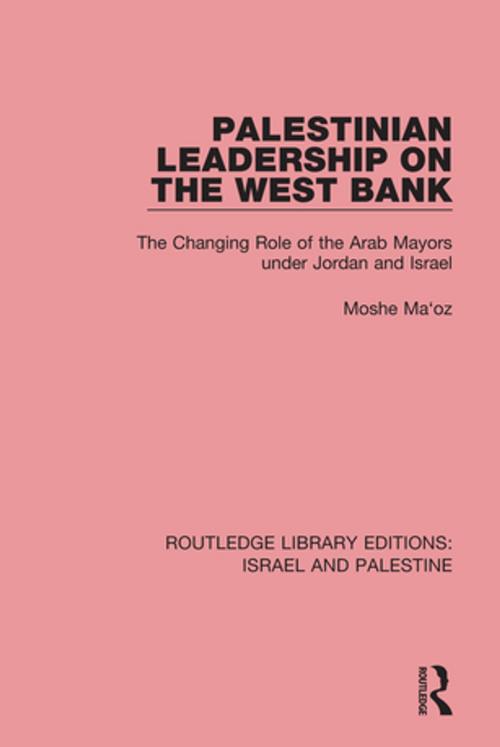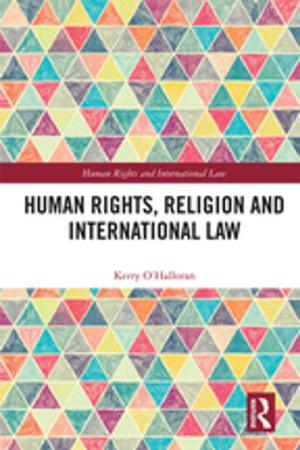Palestinian Leadership on the West Bank (RLE Israel and Palestine)
The Changing Role of the Arab Mayors under Jordan and Israel
Nonfiction, Social & Cultural Studies, Social Science| Author: | Moshe Maoz | ISBN: | 9781317450313 |
| Publisher: | Taylor and Francis | Publication: | May 22, 2015 |
| Imprint: | Routledge | Language: | English |
| Author: | Moshe Maoz |
| ISBN: | 9781317450313 |
| Publisher: | Taylor and Francis |
| Publication: | May 22, 2015 |
| Imprint: | Routledge |
| Language: | English |
The West Bank has for generations been the core area of the Palestinian-Arab community and of its national movement. Since 1967, it has become the main area of confrontation in the prolonged conflict between Palestinian-Arab and Jewish-Zionist nationalism. The Palestinian armed organization, the PLO – which has undertaken to lead the nationalist struggle of their people – was for long periods unable to operate on the West Bank because of strict security measures taken by the Jordanian and Israeli governments respectively. Consequently, the Palestinian mayors in the West Bank, who under Jordanian rule (1948-1967) had served as ruling instruments of the government, gradually became under Israeli control the political spokesmen of their communities. This book, first published in 1984, examines this remarkable change in the role of the West Bank Palestinian mayors, and their transformation since the early 1970s from conservative-moderate figures into radical-nationalist leaders. Against the background of the developing Palestinian and Israeli militant nationalism in the West Bank, the study analyses the complex relations between these new leaders and the governments of Israel and Jordan as well as the PLO command, until their final eviction by Israel in 1982.
The West Bank has for generations been the core area of the Palestinian-Arab community and of its national movement. Since 1967, it has become the main area of confrontation in the prolonged conflict between Palestinian-Arab and Jewish-Zionist nationalism. The Palestinian armed organization, the PLO – which has undertaken to lead the nationalist struggle of their people – was for long periods unable to operate on the West Bank because of strict security measures taken by the Jordanian and Israeli governments respectively. Consequently, the Palestinian mayors in the West Bank, who under Jordanian rule (1948-1967) had served as ruling instruments of the government, gradually became under Israeli control the political spokesmen of their communities. This book, first published in 1984, examines this remarkable change in the role of the West Bank Palestinian mayors, and their transformation since the early 1970s from conservative-moderate figures into radical-nationalist leaders. Against the background of the developing Palestinian and Israeli militant nationalism in the West Bank, the study analyses the complex relations between these new leaders and the governments of Israel and Jordan as well as the PLO command, until their final eviction by Israel in 1982.















